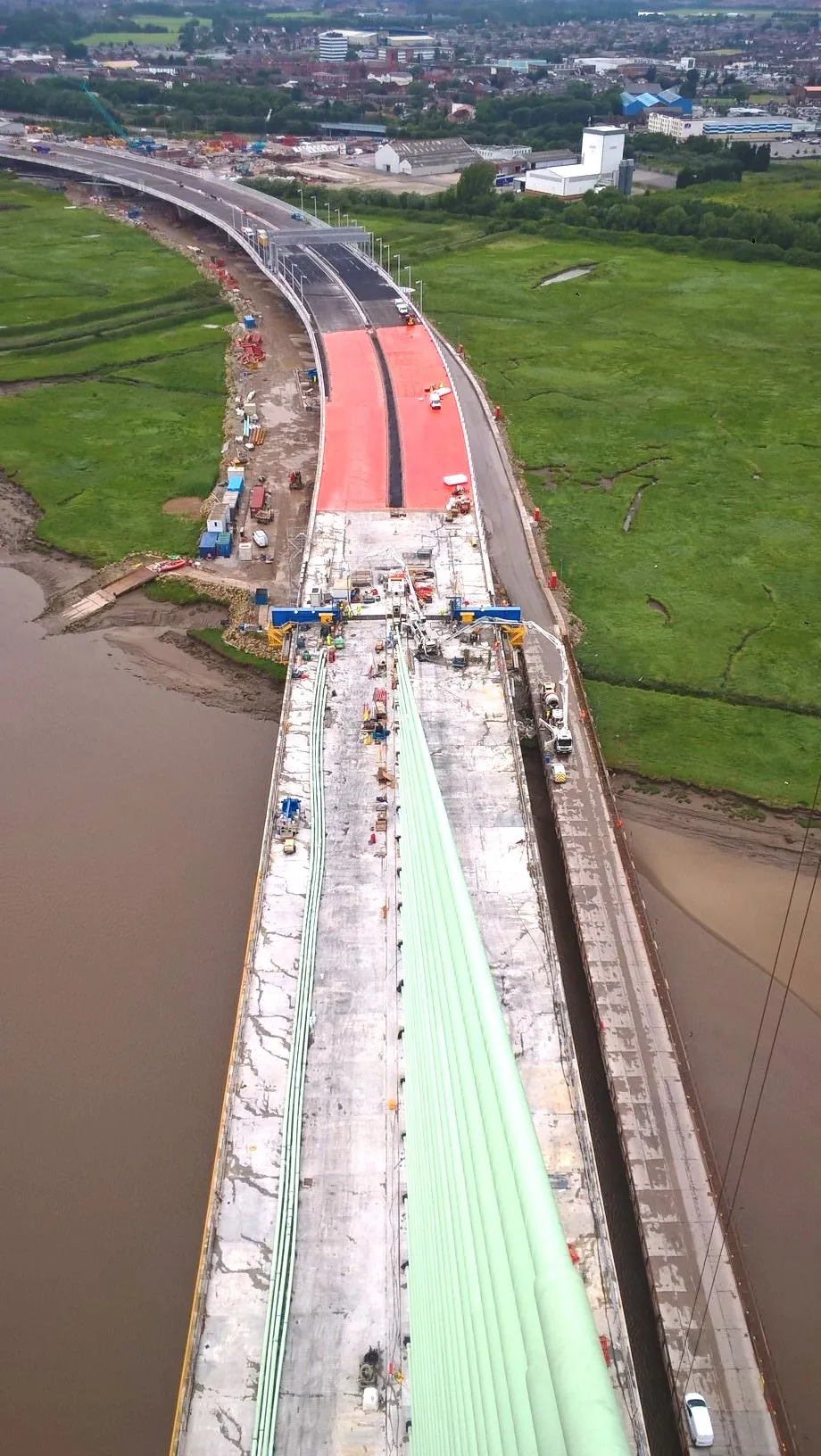A Canadian subsidiary of Vinci Concessions, has signed a 30-year public-private partnership (P3) deal for a bypass around the Saskatchewan provincial capital city Regina.
Regina Bypass Partners is a (37.5%) subsidiary of Vinci Concessions, in partnership with Parsons Enterprises (25%), Connor Clark & Lunn GVest fund (25%) and Gracorp Capital (12.5%).
Parsons Enterprises - the Parsons division focused on the development, delivery, financing, and management of infrastructure under P3s - is an equity par
August 7, 2015
Read time: 2 mins
A Canadian subsidiary of 4084 Vinci Concessions, has signed a 30-year public-private partnership (P3) deal for a bypass around the Saskatchewan provincial capital city Regina.
Regina Bypass Partners is a (37.5%) subsidiary of Vinci Concessions, in partnership with3220 Parsons Enterprises (25%), Connor Clark & Lunn GVest fund (25%) and Gracorp Capital (12.5%).
Parsons Enterprises - the Parsons division focused on the development, delivery, financing, and management of infrastructure under P3s - is an equity participant in Regina Bypass Partners. “Parsons is pleased to be a part of the largest transportation infrastructure project in Saskatchewan’s history, a project that will be completed using alternative project delivery methods,” said Dean Harwood, president of Parsons Enterprises.
The build-operate deal was signed with the Saskatchewan’s Ministry of Highways and Infrastructure and is the province’s first transportation public-private partnership (PPP).
The project, which represents a total investment of nearly US$1.45 billion involves the design, financing, construction, operation and maintenance of the 61km four-lane highway. Work includes 37km of new road, renovation to 24km of roads construction of 12 interchanges and access roads and 38 civil engineering structures.
Construction will last about four years and be carried out by Regina Bypass Design–Builders, a joint venture consisting of Carmacks Enterprises (18.75%) – a wholly-owned subsidiary of3281 Eurovia, Vinci Construction Terrassement (18.75%), Graham Infrastructure (37.5%) and Parsons Canada (25%).
The bypass is part of the cross-continental Trans-Canada Highway, or Highway 1.
Once completed, the motorway will be operated and maintained by Regina Bypass Operations and Maintenance, a wholly owned subsidiary of Vinci, for 30 years. Regina Bypass Partners will receive payments during the operating period based on availability of the highway infrastructure.
“The P3 mode will help us deliver this project on-time and on-budget in a timeframe that would otherwise not have been achievable through a traditional construction approach,” said Gordon Wyant, minister responsible for SaskBuilds, the province’s agency for planning and managing large-scale infrastructure projects. “We are pleased to be moving forward with the Regina Bypass Partners team to deliver this key public asset.”
Regina Bypass Partners is a (37.5%) subsidiary of Vinci Concessions, in partnership with
Parsons Enterprises - the Parsons division focused on the development, delivery, financing, and management of infrastructure under P3s - is an equity participant in Regina Bypass Partners. “Parsons is pleased to be a part of the largest transportation infrastructure project in Saskatchewan’s history, a project that will be completed using alternative project delivery methods,” said Dean Harwood, president of Parsons Enterprises.
The build-operate deal was signed with the Saskatchewan’s Ministry of Highways and Infrastructure and is the province’s first transportation public-private partnership (PPP).
The project, which represents a total investment of nearly US$1.45 billion involves the design, financing, construction, operation and maintenance of the 61km four-lane highway. Work includes 37km of new road, renovation to 24km of roads construction of 12 interchanges and access roads and 38 civil engineering structures.
Construction will last about four years and be carried out by Regina Bypass Design–Builders, a joint venture consisting of Carmacks Enterprises (18.75%) – a wholly-owned subsidiary of
The bypass is part of the cross-continental Trans-Canada Highway, or Highway 1.
Once completed, the motorway will be operated and maintained by Regina Bypass Operations and Maintenance, a wholly owned subsidiary of Vinci, for 30 years. Regina Bypass Partners will receive payments during the operating period based on availability of the highway infrastructure.
“The P3 mode will help us deliver this project on-time and on-budget in a timeframe that would otherwise not have been achievable through a traditional construction approach,” said Gordon Wyant, minister responsible for SaskBuilds, the province’s agency for planning and managing large-scale infrastructure projects. “We are pleased to be moving forward with the Regina Bypass Partners team to deliver this key public asset.”






